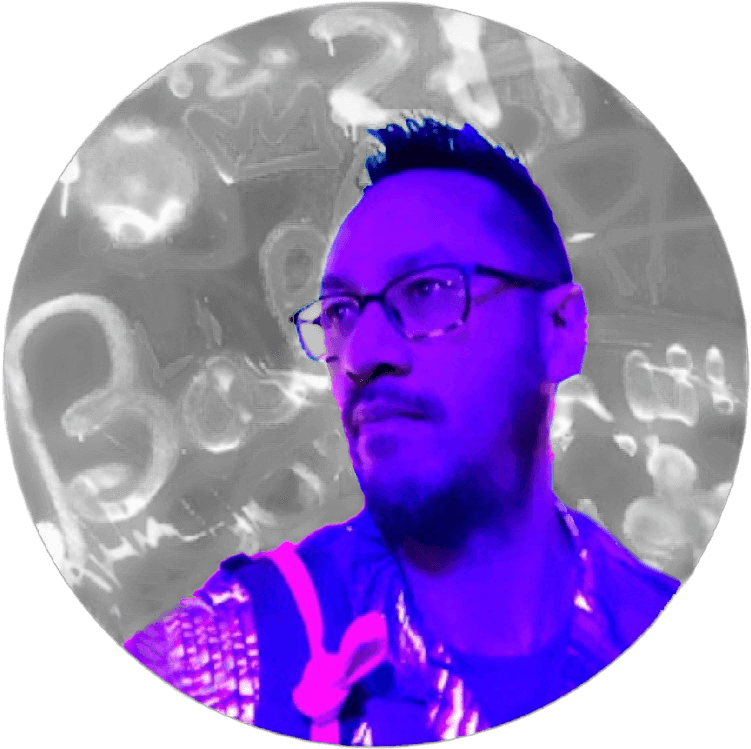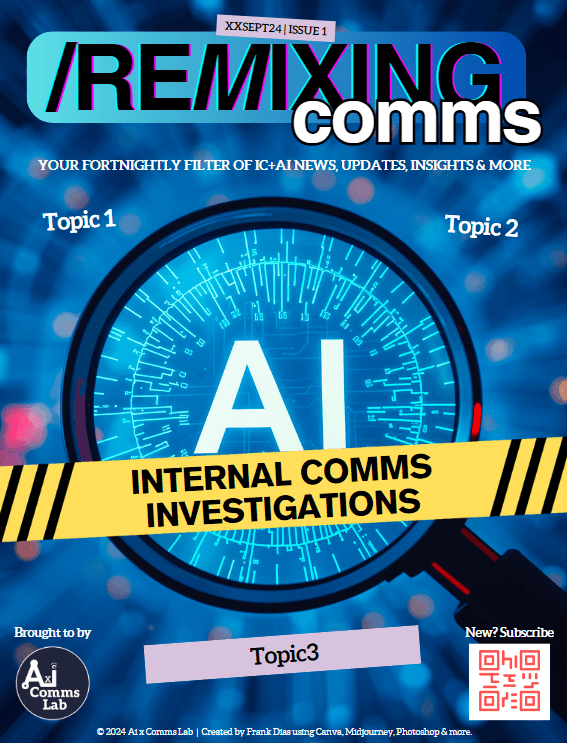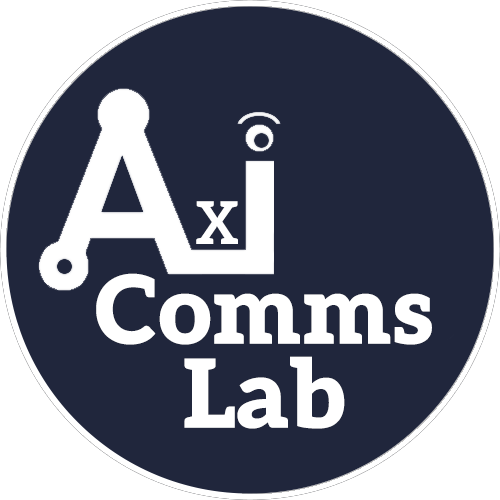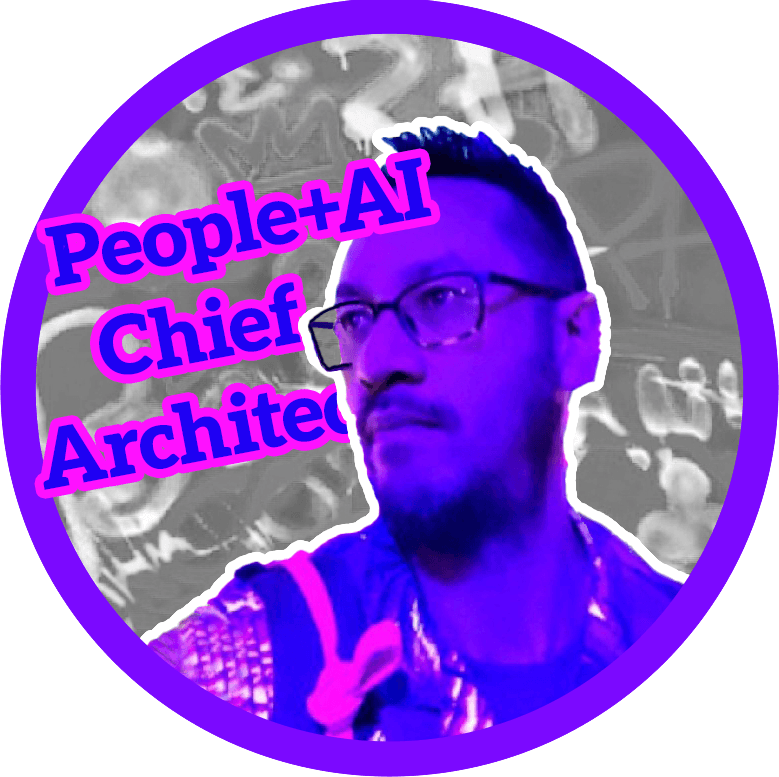KEY POINTS: - We solve the AI implementation gap - transforming teams from AI-curious to strategically confident in days, not months - Personal trainer approach for AI adoption - hands-on practice with your real work, not theoretical training - People+AI methodology - amplifying human value rather than replacing teams - Three-tier service model: from single workshops (immediate impact), to workflow and process redesign, to full department transformation (3-15 months) - Proven results with 1,000+ people globally, 10/10 satisfaction scores, working with approved enterprise tools
About me

"I'm like a personal trainer for AI adoption. I help teams build confidence through hands-on practice with their real work."
👋 Hi. I'm Frank Dias. I've been living and breathing AI 🤖 in communications since ChatGPT launched in November 2022 - not as a tech evangelist, but as a working practitioner who uses these tools daily to transform team workflows.
🌐 I've been in global internal communications for over 15 years across numerous sectors. My real-life experience as a professional working with AI has honed my knowledge, skills, behaviours, critical thinking, and mindset.
❌ The problem I can help you solve
Most teams have AI tools, but they lack confidence in using them strategically. They're stuck performing basic tasks while missing out on real opportunities for workflow transformation.
It's like having a gym membership, but without a personal trainer - the tools are there, but you need proper guidance to truly benefit from knowing how to use the equipment to achieve results.
💖 Why People+AI First Matters
While companies like Duolingo and Klarna rush to replace people with AI (and then have to about-turn), I believe the sustainable formula is People + Teams + Departments + AI = Greater Value, Enhancement & Relevancy.
Technology should amplify human value, not replace it.
My approach helps teams become AI-empowered, with people at the centre, ensuring they don't become AI-dependent.
➡️ Explore my services and contact me if you'd like to accelerate your team's capabilities and strategic potential.
Check out my FAQs below ⬇️
🎓 Most of my learning of AI is via YouTube, LinkedIn and daily practice.
Here are a few of the channels I follow: @TinaHuang1 | @graceleungyl | @mreflow | @BlazingZebra | @WesRoth | @sabrina_ramonov | @cspenn
Here are some of the best people I follow on LinkedIn: Visionaries > emollick | alliekmiller | stuart-winter-tear | Other experts > stuartbruce | accessible-ai | andrewbrucesmith | laura-trujillo-li | fionapassantino | shaunrandol | neil-harrison | dan-sodergren.
However, the real learning occurs through my daily use. I also utilise multiple AI tools in my workflow and help organisations implement them practically, not just theoretically.
I've completed accredited AI training with LinkedIn Learning - How to use GenAI: Building an AI-First Mindset | AI for Non-Techies - Become an AI Trainer | Section - Become an AI Leader in a Day...
But most importantly, I use AI tools daily in my work - Claude, ChatGPT, Gemini, Copilot, and Perplexity - so I understand practical implementation, capabilities and limitations. And not just theory.
I've led AI implementation in my Communications role at QBE Insurance (my first AI experiments in 2022), Framestore (solo AI integration as internal comms manager, 2023-2024), and The Adecco Group (Comms Lead for AI Strategic Transformation Programme across 70,000 employees globally, 2024-2025).
Each experience has taught me different aspects of successful AI implementation at scale within complex organisations.
Here's a snapshot of my working journey with AI so far - From Experiments to Expertise:
➡️ November 2022 - QBE Insurance: When ChatGPT launched, I didn't experiment alone - I made it a team sport. I began by reviewing the CEO's year-end message to explore what AI could do, comparing it with my own written work as part of my AI lab experiment. This was my 'ah-ha'💡moment seeing that people's USP working with AI is with their real-life knowledge to make judgments and decisions on AI outputs. I built my team's confidence through practical application and shared discussion.
➡️ July 2023 - 2024 - Framestore: I was a solo internal comms manager integrating Google Gemini into real workflows. I became the go-to person for C-suite AI queries, almost like a FrankGPT AI. I developed my 'orchestrator and editor' approach - solidifying my thinking that people's USP is knowing what good looks like and iterating from there.
➡️ October 2024 - May 2025 - The Adecco Group: I was the Comms Lead for their AI Strategic Transformation Programme. I experienced a maturing large-scale AI transformation with proper responsible AI principles, structured learning pathways, and an AI champions network across 70,000 employees globally. It provided me with a wealth of insights on what works and what doesn't when rolling out such a transformation programme. Their approved AI tool was Microsoft Copilot.
➡️ July 2024-Present - Ai x Comms Lab: I launched my consultancy to solve the structured implementation gap I kept seeing everywhere, and I wanted to help leaders and teams develop a co-destination together so that they had a direction for their AI maturity journey.
My combined 15+ years of global internal communications experience with 3+ years of hands-on AI implementation across different enterprise organisations.
I've been featured across multi-industry platforms:
> Interviewed for the 🎞️ C-Suite Podcast
> Rachel Miller's All Things IC (Part 1 and Part 2),
> Shaun Randol's Mixternal Playbook Substack (Creating an Employee Engagement Survey with AI: Part 1 and Part 2),
> Numerous partnerships with comms agencies Kademy and Cosy Meerkat,
> Comms+AI freelancers like Natalie Moran's Comms Futurist webinar,
> With email and intranet platforms companies Unily, Simpplr and Workshop,
> With Communicate Magazine,
> With comms recruitment specialists, Comma Partners,
> And also with comms membership bodies IABC, and IoIC with a mix of webinars and in-person events.
I've helped 1,000+ people globally with my most recent workshops, receiving 10/10 satisfaction scores.
I love 😻sharing my experience, expertise and insights with others.
My focus is on building team-wide AI confidence and know-how, and helping people transition from AI-uncertain to AI-empowered. Through hands-on practice with real workflows, teams develop judgment about when and how to use AI strategically, directly connected to their work. This collective capability means your team becomes more valuable and adaptable as AI technology evolves, rather than becoming obsolete or overly dependent on specific tools.
Having been at The Adecco Group, I developed an early appreciation for a mature approach to Responsible AI Principles, with leadership.
This experience instilled in me the need to design responsible AI from the start, encompassing data privacy, ethical use, human oversight, and clear decision-making frameworks.
I learnt that it was not just about learning how to use AI, but also about using it responsibly within an organisational context and personally. This is our human responsibility. My approach is a People+AI by design.
These are my 4 Principles:
1. Value people first to leverage AI strategically
2. Co-design a team's AI-enhanced journey together
3. Ensure responsible AI decisions and actions always
4. Cultivate collective capability that future-proofs a team's value.
I've also signed up to the Global Alliance Responsible AI Principles for the PR and Communication Profession - The Venice 7 Responsible AI Guiding Principles:
1. Ethics First
2. Human-Led Governance
3. Personal and Organisational Responsibility
4. Awareness, Openness, and Transparency
5. Education and Professional Development
6. Active Global Voice
7. Human-Centred AI for the Common Good.
I've worked with Copilot (Adecco Group), Gemini (Framestore), ChatGPT (QBE), and numerous others. My approach is to work with your approved tools using your AI policies.
Professionally and personally, I use a combination of Anthropic's Claude, OpenAI's ChatGPT, Google's Gemini, Microsoft's Copilot, and Perplexity in my workflows, along with various specialist AI tools for different use cases.
I have a thorough understanding of the capabilities and limitations of different platforms. I work with what his clients use.
My approach is "practice what I preach" - I use the same AI tools and security standards most of my clients use.
My Data & Tech Stack:
☁️Cloud environments: Google Workspace and Microsoft 365 business accounts for trust, security, and privacy of client data
🧠Knowledge management: Notion AI is my "second brain" - a searchable library for all my content, thoughts, views, opinions and knowledge
🤖AI models: I use a mix of paid AI models in my daily workflow, primarily Anthropic's Claude, followed by OpenAI's ChatGPT, Google's Gemini, Microsoft's Copilot, and Perplexity. I also utilise xAI's Grok (to connect with the latest real-time conversations on specific subjects), as well as many other AI-specific expert tools, such as Midjourney and Photoshop for images, RunwayML and Capcut for videos. I also experiment with the latest and newest AI tools to test and learn from others. AI tools are fluid. The key is on you to figure out the ones that resonate with you.
🕵️♀️AI agents: MindPal as my current AI agent builder (you can experience a basic example on my Let's Chat page), with plans to learn Copilot AI Studio and other agent tools such as Mindstudio.
This isn't just a data/tech stack - it's proof that I have a deep understanding of these tools through daily use, not just theoretical knowledge. When I recommend AI implementations to clients, I am familiar with their capabilities and limitations because I live with them every day.
The name reflects my core philosophy on the intersection of AI and communication.
I see GenAI tools as communication devices. We type, we speak, we articulate, we draw, we see. AI interaction is visual and audible. It's all about communication - its output is communication, its knowledge base is communication.
Since my work focuses on helping teams communicate more effectively using AI tools, what I do is essentially like running a Communications Lab. The brand name Ai x Comms Lab captures this perfectly - AI enhanced by communications expertise.
This isn't just AI consulting - it's communications-led AI implementation.
The "x" (pronounced as 'by', Ai (by) Comms Lab) represents my lab's focus on experimenting and combining our knowledge and use cases to create our version of AI usage, leveraging its capabilities.
Most AI consultants come from tech backgrounds. I have over 15 years of experience in global internal communications, which is why I understand both the technology and how teams actually communicate and collaborate.
That's common and not a problem. I can help you develop an AI strategy as part of our engagement. Having served as the Comms Lead for The Adecco Group's AI Strategic Transformation Programme, I understand how to develop strategy, policy, and implementation plans that work in tandem. We start with your current reality and build a roadmap that makes sense for your organisation. I also work with other AI strategic, technical, responsible AI, and transformation experts, so I can leverage their expertise depending on your needs.
People vs AI creates fear and resistance. AI alone lacks judgment and context. People+AI amplifies human capabilities while maintaining human decision-making. Having implemented AI across my workflows at three major organisations, I've seen that sustainable transformation that happens when AI enhances human value rather than competing with it. This approach future-proofs teams rather than threatens them.
I'd recommend starting with workshops for your team. Either as a one-off or a series of them.
> Workshops (1-3 weeks): Your team needs immediate confidence-building with existing tools. Workshops achieve this.
> Process Redesign (4-8 weeks): You want to identify and transform specific or all of your workflows for efficiency. This will future-proof what you do and how. It'll give you insights to the art of the possible for everything that you do.
> Full Transformation (3-15 months): You're ready for strategic department-wide AI integration using my 5-step blueprint that is built and designed to evolve your teams to ensure you're future-ready and continue to stay relevant.
The choice depends on your timeline, budget, and transformation ambition. You don't need to do everything. Start small to evolve big.
AI training teaches you about AI capabilities. AI implementation consulting brings your understanding to life by getting your team to use AI with confidence in their daily work.
AI Training is about knowledge:
> Explains what AI can do in theory
> Covers general AI concepts and possibilities
> Usually one-off sessions or courses
> Focuses on understanding tools and features
> Leaves you thinking "that was interesting, but now what?"
AI Implementation Consulting is about transformation:
> Gets teams using AI strategically with their real work
> Solves the gap between "we have the tools" and "we're using them effectively"
> Ongoing support through actual workflow changes
> Focuses on practical application with your approved tools
> Results in teams confidently using AI from day one
Here's the reality: Most teams don't need more knowledge about AI - they need help implementing it. They're stuck performing basic tasks while missing real opportunities for workflow transformation.
The difference is practical: After AI training, teams have more knowledge. After AI implementation consulting, teams work differently. If your team already has AI tools but isn't using them strategically, you don't need more training - you need implementation support. That's exactly what I provide.
Because top-down AI mandates fail. Teams need to understand where they're heading and have input into how they get there.
Based on my enterprise transformation experience across organisations like The Adecco Group, sustainable AI adoption happens when teams help shape their own AI maturity journey. This means involving them in decisions about their purpose, priorities, structure, workflows, and working relationships.
The co-design process works because:
💖Teams buy into solutions they help create
💖Resistance drops when people feel heard and involved
💖Solutions actually fit real working patterns, not theoretical ideals
💖Teams become excited about their future potential, not fearful of being replaced
Here's what makes co-designing powerful:
I bring deep knowledge of current AI capabilities and emerging trends, while team leaders bring an intimate understanding of what their department could become.
Together, we map multiple destinations - immediate wins and inspirational long-term vision.
This isn't just about implementing AI tools. It's about using AI as the greatest transformation opportunity to redesign teams and departments for greater strategic value.
When teams co-create this vision with expert guidance, they don't just adopt AI - they evolve into something more valuable to their organisation.
The result? Teams that see AI transformation as an adventure, not a threat, to be totally empowered to add even greater value becomes the opportunity to seize and realise.
It means starting with human expertise and using AI to amplify it. True AI transformation for employees is about ensuring that AI is, by design, focused on enhancing their professional capabilities, authentic experiences, understanding, and decision-making, rather than threatening them. Every AI implementation decision should always prioritise human judgment, creativity, and relationship-building, while also attaching value to AI for efficiency, enhancement through augmentation, assistance, collaboration, automation, and insight generation gains.
This is the core of my People+AI approach. While companies like Duolingo and Klarna rushed to replace people with AI (then had to reverse course), I believe the sustainable formula is People + Teams + Departments + AI = Greater Value, Enhancement & Relevancy. Technology should amplify human value, not replace it. My 5-step transformation blueprint ensures teams become more strategic and valuable, not redundant.
You need someone who combines deep professional experience with hands-on AI implementation expertise - not a tech evangelist, but a working practitioner who uses AI tools daily in real business environments.
I'm Frank Dias, and here's what makes me unique:
✅15+ years global internal communications experience - I understand team dynamics, not just technology
✅2+ years hands-on AI implementation across complex global enterprise organisations (QBE Insurance, Framestore, The Adecco Group) and with my AI consultancy
✅Personal trainer approach - I guide teams through using AI with their actual content, workflows, and challenges
✅Proven track record - 1,000+ people trained globally with 10/10 satisfaction scores from recent workshops
My "orchestrator and editor" approach means:
✅We work with YOUR approved AI tools, not what I prefer
✅We use YOUR real use cases, not generic examples
✅We solve YOUR actual workflow challenges, not theoretical scenarios
✅Teams practice with their real work and see immediate results
The difference is implementation focus. Most AI training teaches concepts. I get teams actually using AI confidently in their daily work through hands-on practice with real workflows.
I've lived the implementation gap - from solo AI integration at Framestore to leading enterprise-scale transformation at Adecco Group. I know what works in reality, not just theory.
If you want practical AI training that transforms how your team actually works, not just what they know about AI, that's exactly what I deliver.
This is exactly the implementation gap I solve - and the bridge is hands-on practice with real work, not theoretical training.
Having worked with over 1,000 people globally, I've learned that confidence comes from success with your actual challenges, not generic examples.
My methodology bridges the gap through:
✅ Interactive, guided practice sessions - Teams don't just watch demonstrations, they follow along using their own content and workflows. I guide them step-by-step through the tools, illustrating their real-world use cases.
✅ Live problem-solving - We work through their actual challenges in real-time. When someone gets stuck, we solve it together immediately rather than moving on. This builds genuine confidence because they've experienced success firsthand.
✅ Tool unpacking and explanation - I don't just show you what to do, I explain why each AI tool responds the way it does, what's happening behind the scenes, and how to troubleshoot when things don't work as expected.
✅ Continuous Q&A throughout - Questions aren't saved for the end. When someone doesn't understand something, we stop and address it immediately. This ensures everyone stays confident and no one gets left behind.
✅ Your content, your workflows, your challenges - We use your approved AI tools with your real documents, your communication style, your team dynamics. Not my examples, not generic scenarios.
The result? Teams leave knowing they can handle their real work with AI, having already done so successfully with guidance. That's how you build lasting confidence, not just temporary inspiration.
This isn't about teaching AI capabilities; it's about proving to teams that they can succeed with their actual work. Once they've experienced that success hands-on, the confidence transfers to independent use.
Starting with my "personal trainer" approach, I've developed a focus on one workflow at a time using your approved tools.
My proven anti-overwhelm methodology:
✅Start small and specific - Don't try to transform everything at once. Select one repetitive workflow that your team performs regularly and improve it first. Success with one process builds confidence for the next. Test, learn, iterate, pilot, seek feedback, improve, go live, update knowledge and steps, and repeat with other tools.
✅Use what you already have - Work with your approved AI tools and existing workflows. No new platforms, no policy battles, no security concerns. Just better use of what's already there.
✅Improve, then innovate - First, make existing processes better with AI. Once teams see success, they identify completely new opportunities - they can innovate with confidence. This progression prevents overwhelm and builds momentum.
✅Hands-on confidence building - Teams practice with their real work in guided sessions. When they succeed with their actual content and challenges, they feel capable rather than intimidated.
✅Built-in support structure - Questions get answered immediately, challenges get solved together, and nobody gets left behind struggling alone.
At Framestore, I first improved existing processes, then identified new opportunities. This approach prevented overwhelm while building genuine capability.
My Teams+AI Activation Workshops are designed specifically for this - immediate capability building without the feeling of being overwhelmed. Teams leave confident that they can apply AI to their real work, not just impressed by what's possible; making architecture, creating, and building with AI a team sport.
The key insight: Overwhelm happens when teams think they need to understand everything about AI. Success happens when they master one workflow at a time with tools they already have.
Bottom line: Don't try to transform your entire team overnight. Transform one workflow well, build confidence, then expand. That's how you get lasting adoption, not just temporary enthusiasm.
The key is moving from "AI tools as novelty" to "AI as workflow enhancement."
Based on my experience across QBE Insurance, Framestore, The Adecco Group, and my consultancy, this shift requires three things:
1️⃣Clear decision-making frameworks
2️⃣Hands-on practice with real work
3️⃣Confidence-building through strategic wins.
Here's my proven methodology:
✅Use my "Human-owned, AI-augmented, or AI-automated" framework (which I teach in my workshops) - For every task, teams learn to ask: When should we own specific tasks completely, when should I use AI to enhance our work, or when should I let AI handle it entirely? This stops random AI dabbling and starts you thinking strategically with a People+AI approach to build behaviours and mindset systematically.
✅Start with workflow pain points, not AI capabilities - Instead of asking "what can AI do?", ask "what slows us down?" Then we map AI solutions to those specific problems. This creates immediate strategic value.
✅Practice strategic thinking with your real challenges - Teams work through actual decisions using AI as a thinking partner, not just a task-doer. They learn to use AI for analysis, planning, and problem-solving in their real work.
✅Build strategic wins, not just task completion - We identify opportunities where AI can make teams more valuable to the organisation - better insights, faster decision-making, more strategic output. Success breeds more strategic thinking.
✅Show the multiplication effect - When teams see how AI can amplify their expertise rather than replace basic tasks, they naturally gravitate toward more strategic applications.
The breakthrough moment comes when teams realise AI isn't about doing their current work faster - it's about doing more valuable work entirely.
My approach creates this shift by providing teams with frameworks for strategic decisions and demonstrating that they can succeed with higher-value AI applications by addressing their real challenges.
Bottom line: Strategic AI use happens when teams have clear frameworks for decisions and experience success with valuable applications, not just impressive demonstrations.
At Ai x (by) Comms Lab, we help teams practically master strategic AI use for business impact. We teach you how to fish🎣 with AI🤖, so you can fish to bring your strategic use of AI to life with guidance and support on your journey.
Are you ready to transform your team into strategic AI masters? Get in touch ↖️

➡️ Subscribe to my newsletter /REMIXING comms
Practical AI news, insights, learning & more curated & filtered for your inbox.
© 2025 Ai x Comms Lab




